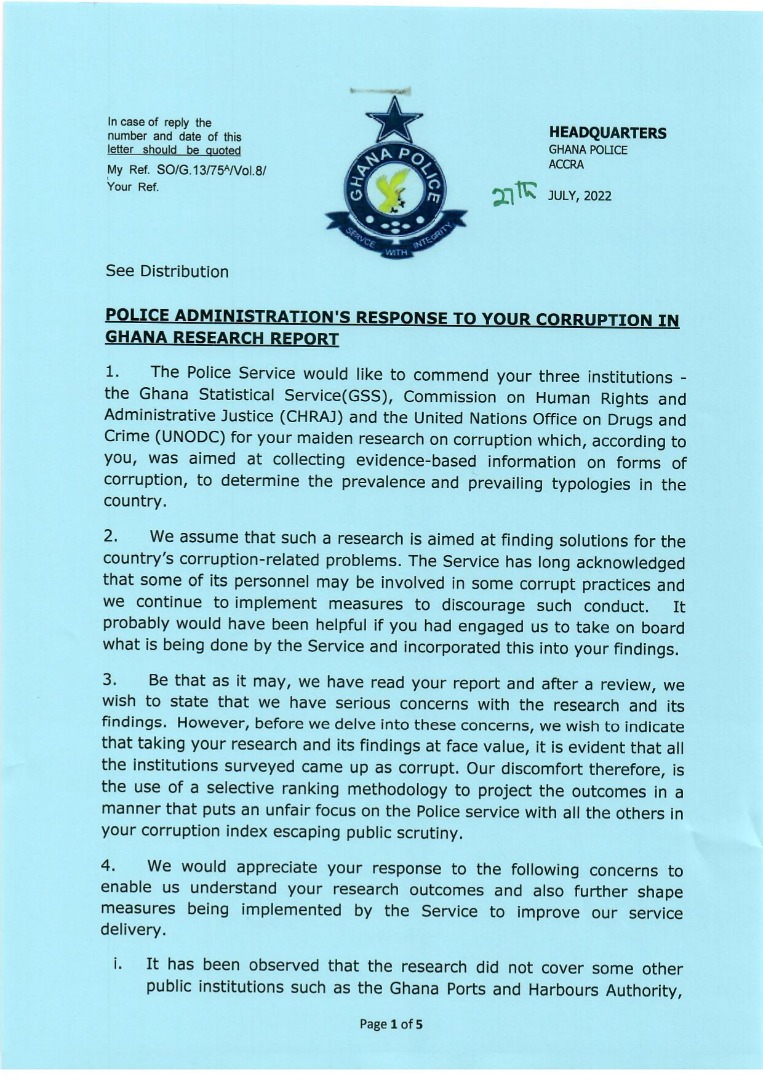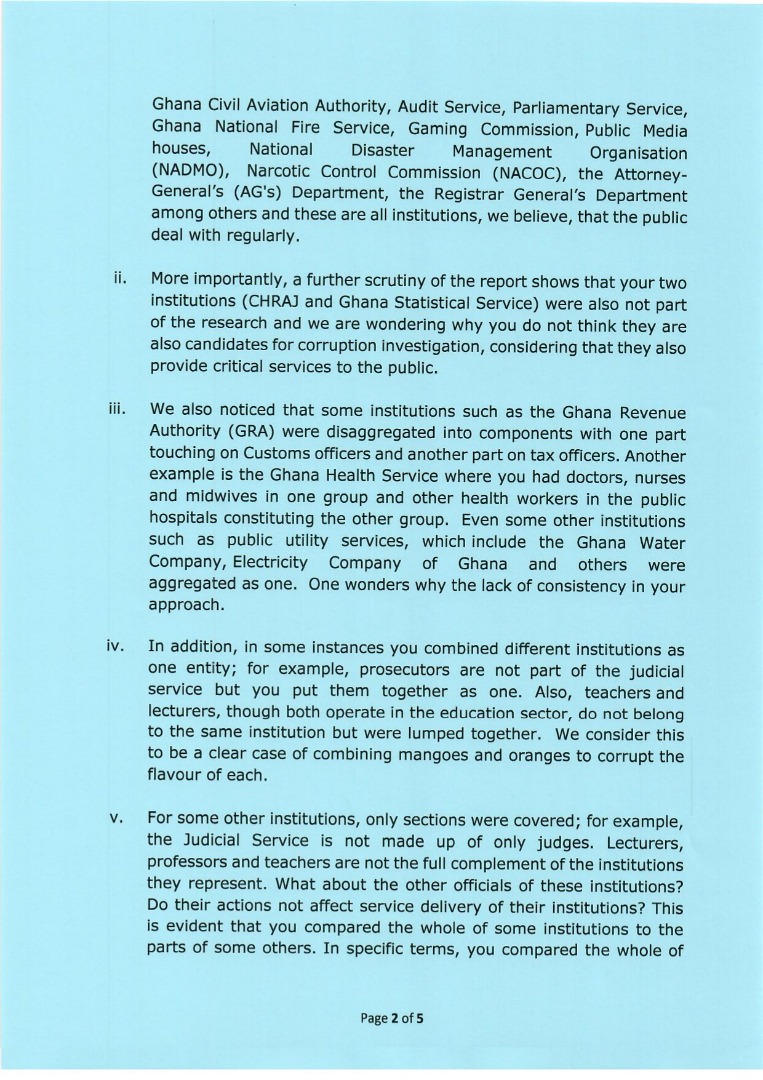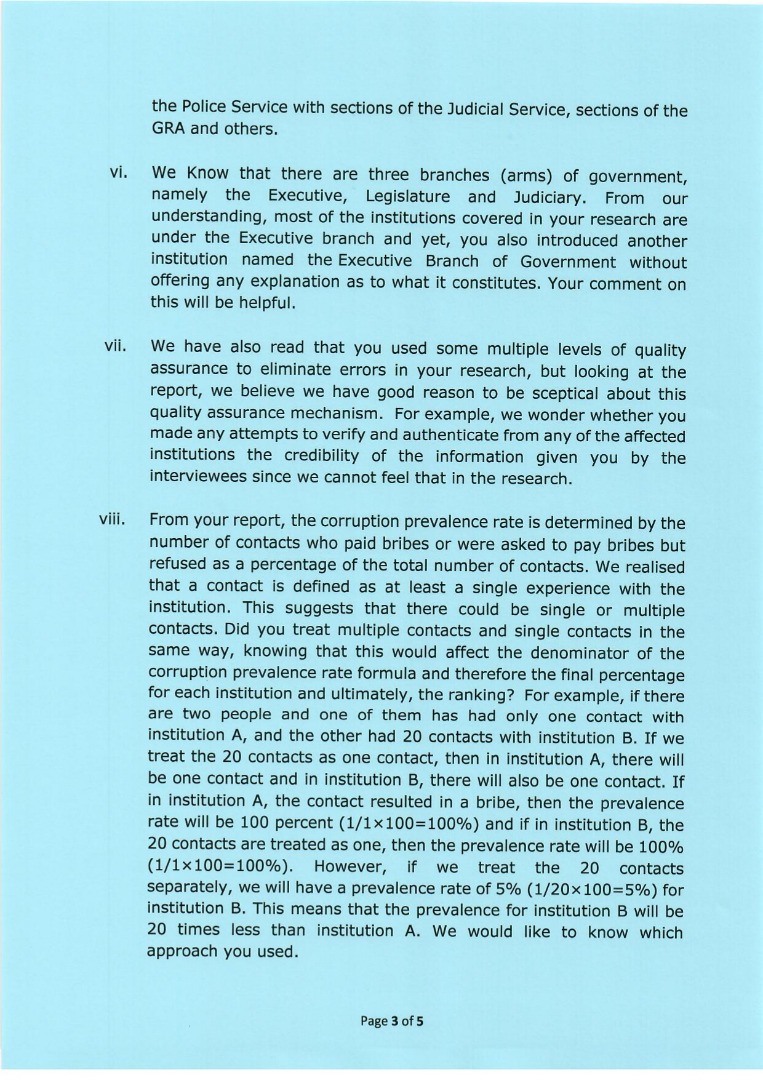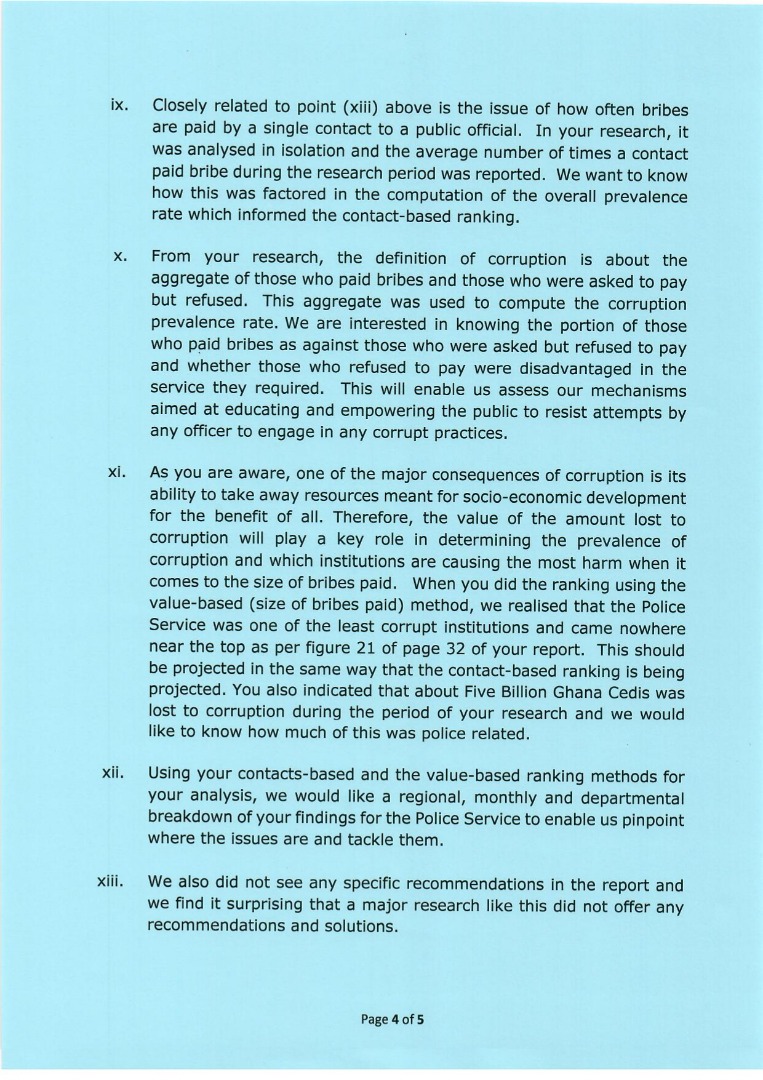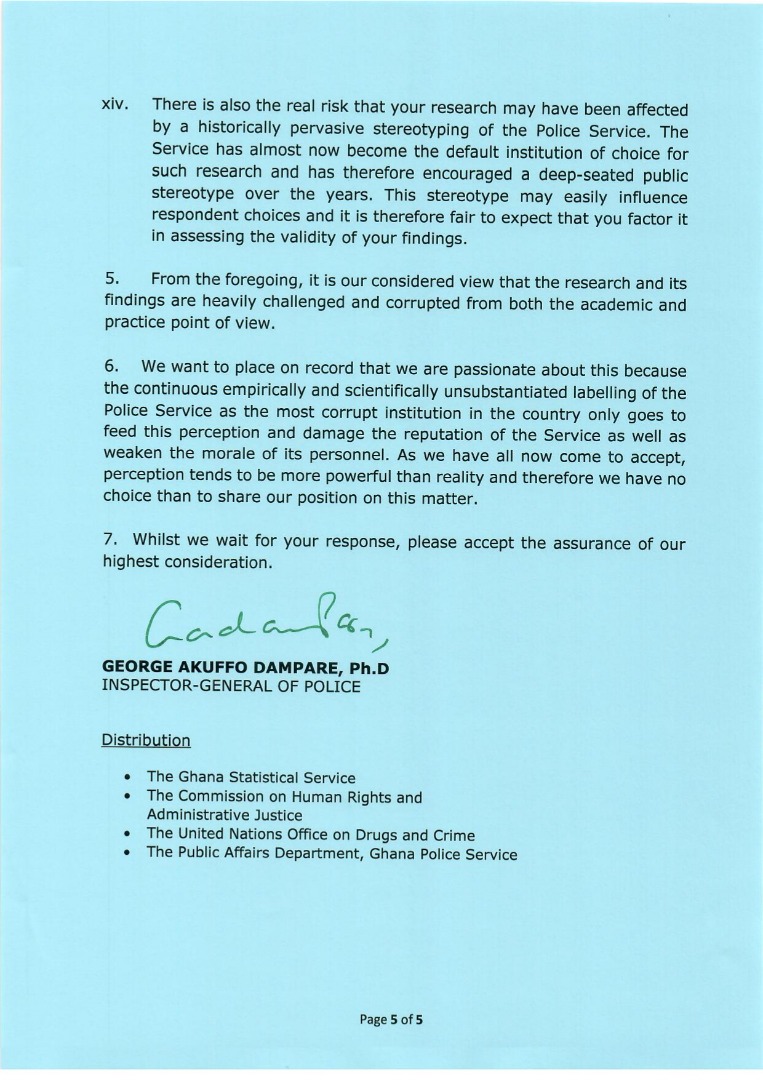The Ghana Police Service has responded to the recent survey conducted by the Ghana Statistical Service and other agencies that placed the law enforcement agency as the most corrupt institution in the country.
The police response follows the survey conducted by the Ghana Statistical Service (GSS), Commission on Human Rights and Administrative Justice (CHRAJ), and the United Nations Office on Drugs and Crime (UNODC).
But the Inspector General of Police (IGP), Dr. George Akuffo Dampare, in a 14-pointer letter directed to the research institutions has taken an exception to the development and discredited the findings.
According to the police concerns, there are questions about the methodology used and thereby describing the findings as “heavily challenged and corrupt”.
“We assume that such a research is aimed at finding solutions for the country’s corruption-related problems.
“The Service has long acknowledged that some of its personnel may be involved in some corrupt practices and we continue to implement measures to discourage such conduct.
“It probably would have been helpful if you had engaged us to take on board what is being done by the Service and incorporated this into the findings,” he acknowledged.
It noted that the services are passionate about the report “since the continuous empirically and scientifically unsubstantiated labeling of the police as the most corrupt institution in the country only goes to feed this perception and damage the reputation of the Police Service as well as weaken the morale of its personnel.”
It further wondered why the research institutions like GSS and CHRAJ were not part of the surveys since they are also candidates of corruption.
“More importantly, a further scrutiny of the report shows that your two institutions (CHRAJ and Ghana Statistical Service) were also not part of the research and we are wondering why you do not think they are also candidates for corruption investigation, considering that they also provide critical services to the public.”
Against this background, the police service said it considers the findings as a clear case of “combining mangoes and oranges to corrupt the flavor of each.”
The police in its view maintained that it considered the research and its findings to be heavily challenged and corrupted from both the academic and practice point of view.
Read below the full statement
